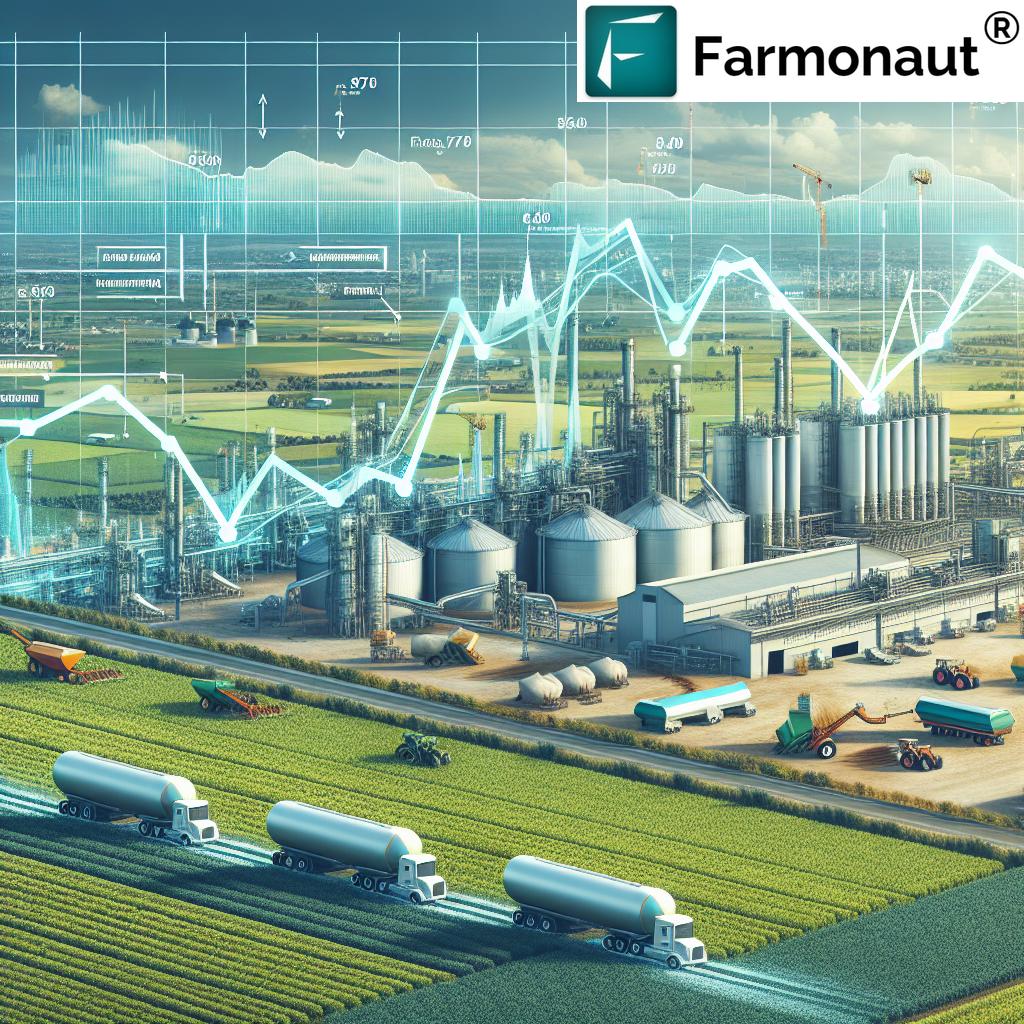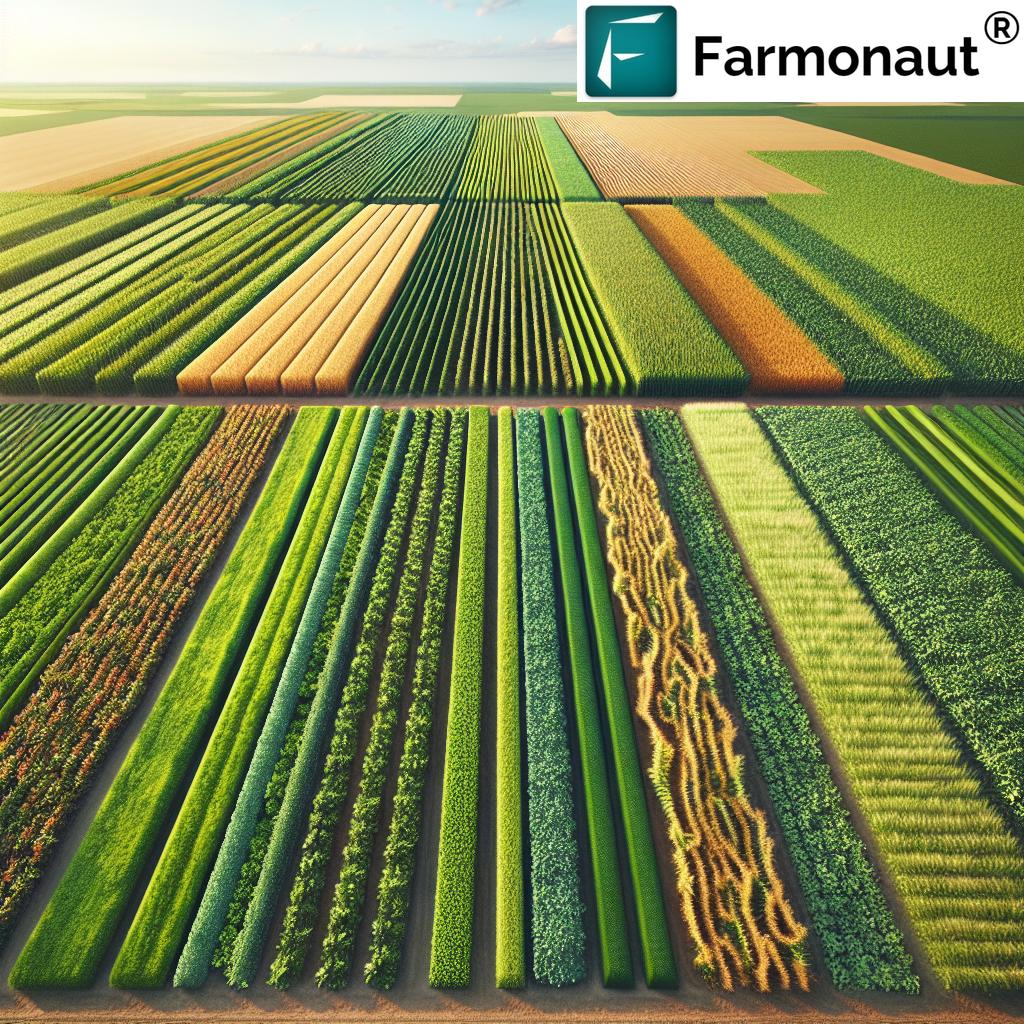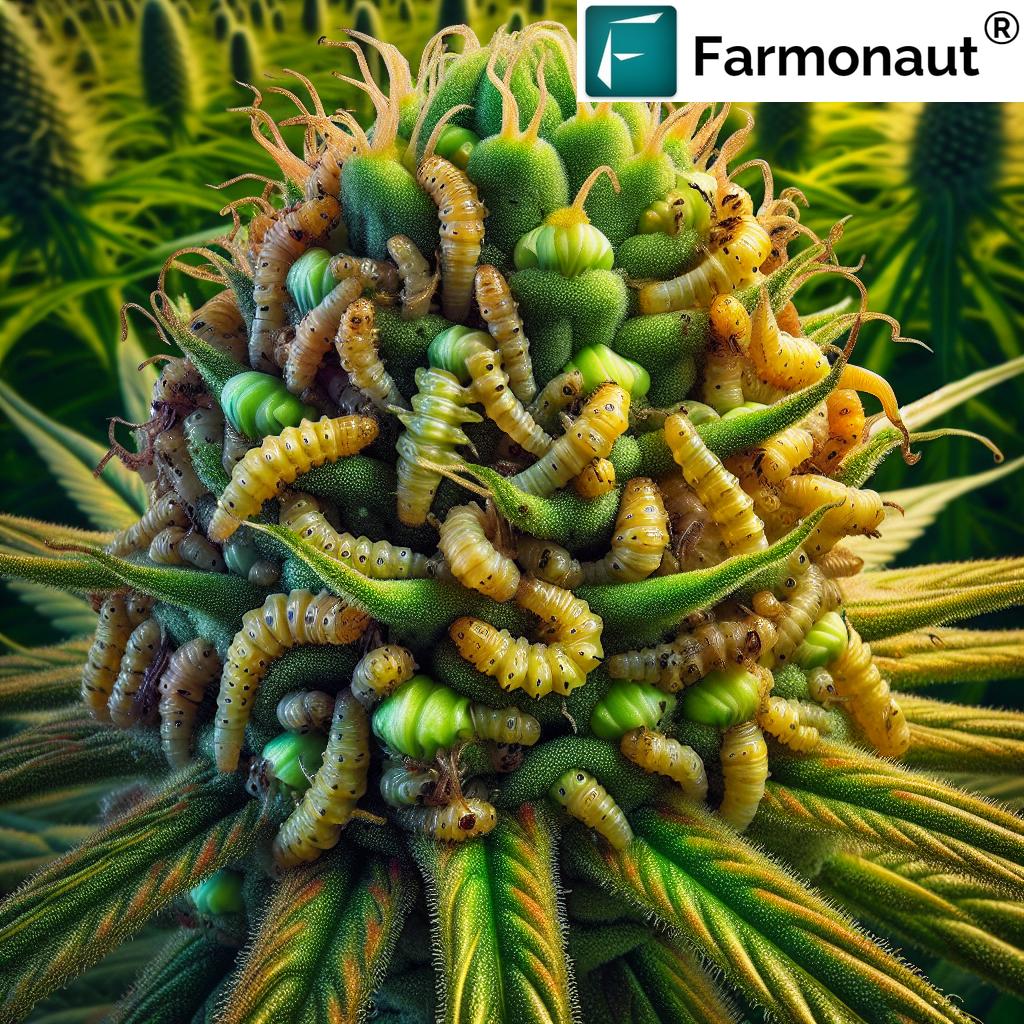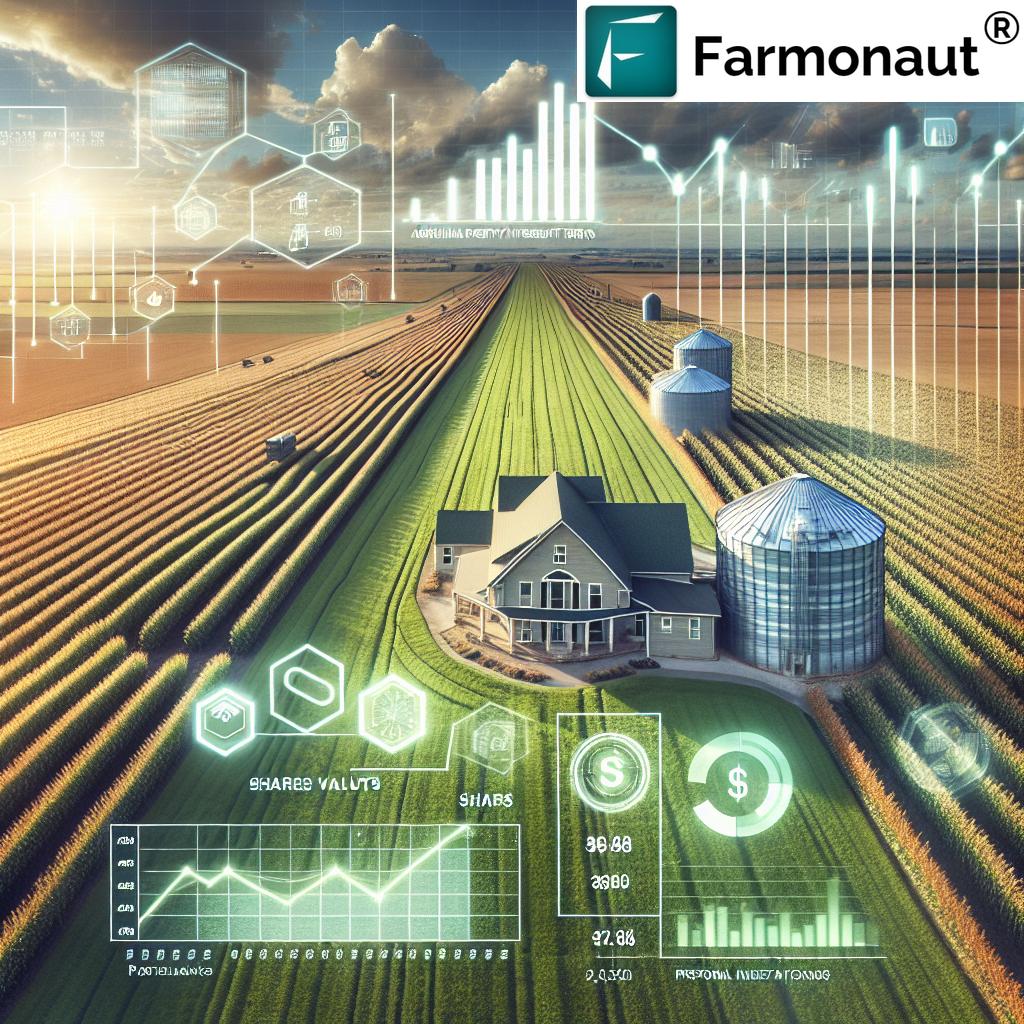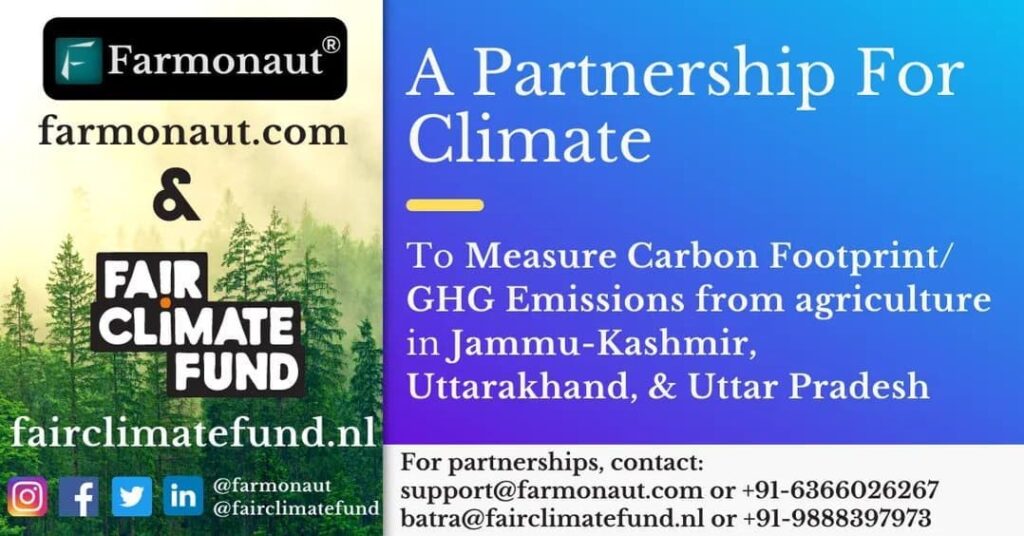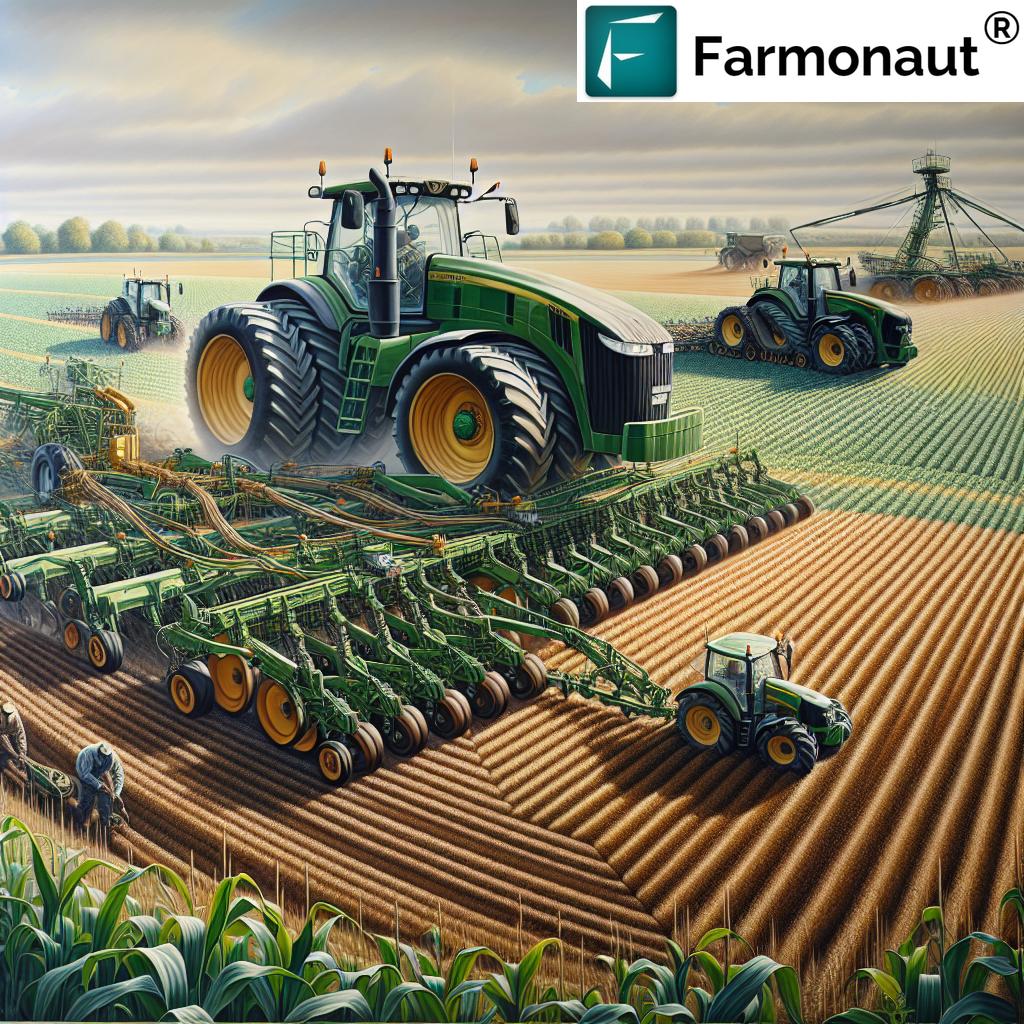Advancing Global Food Security: Insights from Lucknow’s Agricultural Symposium
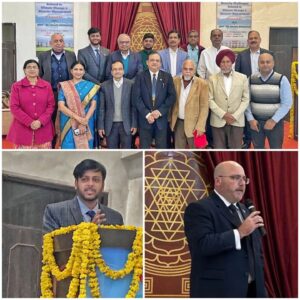
In the heart of Uttar Pradesh, Lucknow recently played host to a groundbreaking agricultural symposium that brought together experts from across the globe. We at Farmonaut were privileged to be part of this transformative event, where the focus was squarely on addressing some of the most pressing challenges facing our world today: global food security, climate change, and disaster management. The symposium highlighted the potential of
sorghum and
millets as game-changing crops in mitigating these challenges.
Connecting with Industry Leaders
One of the highlights of the symposium was the opportunity to connect with esteemed professionals in the agricultural sector. We had the pleasure of engaging with:
- Mr. Nate Blum, Director and CEO at Sorghum United
- Dr. Satyen Yadav, Director at Indo-US Millet Initiative
- Numerous other distinguished industry leaders
These interactions provided invaluable insights into the current state of global agriculture and the innovative approaches being developed to address its challenges.
The Promise of Sorghum and Millet Farming
A significant portion of the symposium was dedicated to discussing the potential of
sorghum farming and
millet farming in addressing global food security concerns. Here’s why these crops are gaining attention:
Sorghum: A Versatile Crop for Changing Times
Sorghum farming is increasingly recognized as a vital component in the fight against food insecurity and climate change. This resilient crop offers numerous benefits:
- Drought tolerance: Sorghum can thrive in arid conditions, making it ideal for regions facing water scarcity.
- Nutritional value: Rich in protein, fiber, and essential minerals, sorghum contributes to balanced diets.
- Versatility: Used for human consumption, animal feed, and biofuel production.
- Carbon sequestration: Sorghum’s deep root system helps in carbon capture, contributing to climate change mitigation.
Millets: Small Grains with Big Impact
Millet farming is experiencing a renaissance, with these ancient grains being rediscovered for their nutritional and environmental benefits:
- Climate resilience: Millets can grow in poor soil conditions and require minimal water.
- Nutritional powerhouse: High in protein, fiber, and micronutrients, millets contribute to food security and nutrition.
- Short growing season: Allows for multiple harvests per year, enhancing food availability.
- Biodiversity: Different varieties of millets contribute to crop diversity, crucial for sustainable agriculture.
Addressing Global Food Security
The symposium deeply explored the critical issue of
global food security. As the world population continues to grow, ensuring adequate food supply for all becomes increasingly challenging. Here are some key points discussed:
Challenges to Global Food Security
- Population growth: The global population is expected to reach 9.7 billion by 2050, requiring a significant increase in food production.
- Climate change: Changing weather patterns and extreme events threaten crop yields worldwide.
- Resource scarcity: Arable land and freshwater resources are becoming increasingly limited.
- Food waste: A significant portion of produced food is lost or wasted along the supply chain.
- Economic disparities: Poverty and inequality contribute to food insecurity in many regions.
Innovative Solutions for Food Security
Experts at the symposium presented various innovative approaches to enhance global food security:
- Precision agriculture: Utilizing technologies like satellite imagery and AI to optimize crop yields.
- Crop diversification: Promoting a wider variety of crops, including sorghum and millets, to enhance nutritional security and resilience.
- Sustainable intensification: Increasing agricultural productivity while minimizing environmental impact.
- Improved supply chains: Implementing technologies like blockchain for better traceability solutions and reduced food waste.
- Climate-smart agriculture: Adopting farming practices that are resilient to climate change and contribute to mitigation efforts.
The Role of Technology in Modern Agriculture
At Farmonaut, we’re at the forefront of integrating cutting-edge technology into agriculture. The symposium provided an excellent platform to discuss how advanced geospatial technologies, traceability solutions, and other innovations can revolutionize farming practices.
Satellite-Based Farm Management
Our satellite-based farm management solutions offer numerous advantages over traditional methods:
| Feature |
Farmonaut Satellite System |
Drone-based Monitoring |
IoT-based Monitoring |
| Coverage Area |
Large-scale (global) |
Limited (local) |
Limited (local) |
| Frequency of Data Collection |
Regular (every few days) |
As needed (manual flights) |
Continuous |
| Initial Investment |
Low |
High |
Medium to High |
| Operational Costs |
Low |
Medium |
Low to Medium |
| Ease of Use |
High (cloud-based) |
Medium (requires piloting skills) |
Medium (requires setup and maintenance) |
| Weather Dependency |
Low |
High |
Low |
| Data Analysis |
Advanced AI and ML algorithms |
Varies (often requires separate analysis) |
Real-time but limited scope |
Our satellite-based system offers a comprehensive, cost-effective solution for farm monitoring and management. To experience these benefits firsthand,
try our app today.
Traceability Solutions for Enhanced Food Security
Farmonaut’s blockchain-based
traceability solutions are addressing critical challenges in the agricultural supply chain:
- Transparency: Every step of the food production process is recorded and verifiable.
- Food safety: Quick identification and isolation of contaminated products.
- Consumer trust: Providing end-users with detailed information about their food’s origin and journey.
- Fraud prevention: Reducing the risk of counterfeit or adulterated products entering the supply chain.
For developers interested in integrating our traceability solutions, check out our
API documentation.
Climate Change and Agriculture: A Two-Way Street
The symposium dedicated significant attention to the intricate relationship between
climate change and agriculture. This complex interaction presents both challenges and opportunities:
Impact of Climate Change on Agriculture
- Changing precipitation patterns affecting crop yields
- Rising temperatures leading to increased water demand and heat stress in crops
- More frequent extreme weather events damaging crops and infrastructure
- Shifting growing seasons and zones for various crops
- Increased pest and disease pressure due to changing climatic conditions
Agriculture’s Role in Climate Change Mitigation
While agriculture is affected by climate change, it also has the potential to contribute to mitigation efforts:
- Carbon sequestration through improved soil management practices
- Reduced greenhouse gas emissions through efficient fertilizer use and livestock management
- Adoption of renewable energy sources in farm operations
- Agroforestry and reforestation initiatives
- Cultivation of climate-resilient crops like sorghum and millets
Farmonaut’s Contribution to Climate-Smart Agriculture
At Farmonaut, we’re committed to supporting climate-smart agricultural practices through our technology:
- Precision agriculture: Our satellite monitoring helps optimize resource use, reducing unnecessary emissions.
- AI-powered advisories: Tailored recommendations help farmers adapt to changing climate conditions.
- Carbon footprint tracking: We offer tools to monitor and reduce agricultural carbon emissions.
To learn more about how our solutions can help your farming operations become more climate-resilient, visit our
Android or
iOS app stores.
The Future of Agriculture: Collaborations and Innovations
The symposium in Lucknow was not just about sharing knowledge; it was also about forging new partnerships and exploring collaborative opportunities. We at Farmonaut are excited about the potential collaborations that could emerge from this event, particularly in implementing advanced geospatial, traceability, and other cutting-edge technologies in the agricultural sector.
Potential Areas for Collaboration
- Research and Development: Partnering with academic institutions and research organizations to develop new crop varieties and farming techniques.
- Technology Integration: Collaborating with other tech companies to create comprehensive agricultural solutions.
- Policy Advocacy: Working with government bodies to promote policies that support sustainable and tech-driven agriculture.
- Farmer Education: Joining forces with NGOs and extension services to educate farmers about new technologies and practices.
- Supply Chain Optimization: Partnering with food processors and retailers to implement end-to-end traceability solutions.
Farmonaut’s Global Impact
Our successful initiatives in 14 countries serve as an inspiring model for what we could achieve through these collaborations. Some of our key achievements include:
- Improving crop yields by 20-30% through precision agriculture techniques
- Reducing water usage by up to 25% in water-stressed regions
- Implementing blockchain-based traceability for over 1 million tons of agricultural produce
- Providing AI-powered crop advisories to more than 500,000 farmers globally
We believe that by combining our expertise with that of other industry leaders, we can create even more significant impacts on global food security, climate change mitigation, and sustainable agriculture.
The Road Ahead: Challenges and Opportunities
As we reflect on the insights gained from the Lucknow symposium, it’s clear that the agricultural sector faces both significant challenges and exciting opportunities. Here’s our perspective on the road ahead:
Challenges
- Technology adoption: Ensuring widespread adoption of new technologies, especially among smallholder farmers.
- Data privacy and security: Addressing concerns about data ownership and protection in digital agriculture.
- Infrastructure development: Improving rural infrastructure to support tech-driven farming practices.
- Climate uncertainty: Developing strategies to cope with increasingly unpredictable weather patterns.
- Market volatility: Creating systems to protect farmers from extreme price fluctuations.
Opportunities
- Sustainable intensification: Increasing agricultural productivity while reducing environmental impact.
- Precision agriculture: Leveraging data and technology to optimize every aspect of farming.
- Alternative protein sources: Exploring crops like sorghum and millets for plant-based protein production.
- Circular economy in agriculture: Developing closed-loop systems that minimize waste and maximize resource efficiency.
- AgriTech innovations: Continuing to develop and refine technologies like AI, IoT, and blockchain for agriculture.
Conclusion: A Call to Action
The Lucknow symposium has reinforced our belief at Farmonaut that the future of agriculture lies in collaborative, technology-driven approaches that address the triple challenge of food security, climate change, and sustainable development. We’re committed to playing our part in this transformation, and we invite farmers, agribusinesses, policymakers, and fellow innovators to join us on this journey.
Together, we can create a future where advanced technologies like satellite monitoring, AI advisories, and blockchain traceability are accessible to farmers of all scales, where crops like sorghum and millets play a crucial role in ensuring global food security, and where agriculture becomes a key player in mitigating climate change.
To learn more about how you can be part of this agricultural revolution with Farmonaut, explore our solutions:
Let’s work together to cultivate a more sustainable, secure, and prosperous future for agriculture and our planet.
Subscribe to Farmonaut
Ready to transform your agricultural practices? Subscribe to Farmonaut and gain access to our cutting-edge satellite-based farm management solutions:
FAQ Section
Q1: What is Farmonaut?
A1: Farmonaut is a pioneering agricultural technology company that offers advanced, satellite-based farm management solutions. Our mission is to make precision agriculture affordable and accessible to farmers worldwide by integrating innovative technology and data-driven insights into traditional farming practices.
Q2: How does Farmonaut’s satellite monitoring work?
A2: Farmonaut uses multispectral satellite images to monitor crop health, providing farmers with insights into vegetation health (NDVI), soil moisture levels, and other critical metrics. This data helps farmers make informed decisions about irrigation, fertilizer usage, and pest management, ultimately optimizing crop yields and reducing resource wastage.
Q3: What are the benefits of using Farmonaut for farm management?
A3: Benefits include increased farm productivity, cost-effective precision agriculture, improved sustainability, access to AI-powered advisories, and the ability to make data-driven decisions. Farmonaut’s solutions can help reduce input costs, minimize crop losses, and optimize resource use.
Q4: How can Farmonaut contribute to global food security?
A4: Farmonaut contributes to global food security by helping farmers increase crop yields, reduce resource wastage, and adapt to changing climate conditions. Our technologies support sustainable intensification of agriculture, which is crucial for meeting the growing global food demand.
Q5: Does Farmonaut offer solutions for traceability in the agricultural supply chain?
A5: Yes, Farmonaut provides blockchain-based traceability solutions that ensure transparency and security in agricultural supply chains. This technology helps in building consumer trust, ensuring food safety, and reducing fraud in the food industry.
Q6: How does Farmonaut support climate-smart agriculture?
A6: Farmonaut supports climate-smart agriculture through precision farming techniques that optimize resource use, reduce unnecessary emissions, and help farmers adapt to changing climate conditions. We also offer carbon footprint tracking to help agribusinesses monitor and reduce their environmental impact.
Q7: Can small-scale farmers benefit from Farmonaut’s technologies?
A7: Absolutely! Farmonaut is committed to making precision agriculture accessible to farmers of all scales. Our solutions are designed to be cost-effective and user-friendly, allowing even small-scale farmers to benefit from advanced agricultural technologies.
Q8: How can I start using Farmonaut’s services?
A8: You can start by downloading our app from the
Google Play Store or the
Apple App Store. For more advanced features or API access, you can explore our subscription options or contact our sales team for a customized solution.
Q9: Does Farmonaut provide support for integrating its technologies?
A9: Yes, we provide comprehensive support for integrating our technologies. Our
developer documentation offers detailed guidance, and our technical team is always available to assist with integration and customization.
Q10: How does Farmonaut stay updated with the latest agricultural trends and technologies?
A10: Farmonaut maintains strong connections with agricultural research institutions, participates in industry symposiums like the recent one in Lucknow, and continuously invests in R&D. We also collaborate with farmers and agribusinesses to ensure our solutions address real-world needs and incorporate the latest advancements in agricultural science and technology.
 In the heart of Uttar Pradesh, Lucknow recently played host to a groundbreaking agricultural symposium that brought together experts from across the globe. We at Farmonaut were privileged to be part of this transformative event, where the focus was squarely on addressing some of the most pressing challenges facing our world today: global food security, climate change, and disaster management. The symposium highlighted the potential of sorghum and millets as game-changing crops in mitigating these challenges.
In the heart of Uttar Pradesh, Lucknow recently played host to a groundbreaking agricultural symposium that brought together experts from across the globe. We at Farmonaut were privileged to be part of this transformative event, where the focus was squarely on addressing some of the most pressing challenges facing our world today: global food security, climate change, and disaster management. The symposium highlighted the potential of sorghum and millets as game-changing crops in mitigating these challenges.


